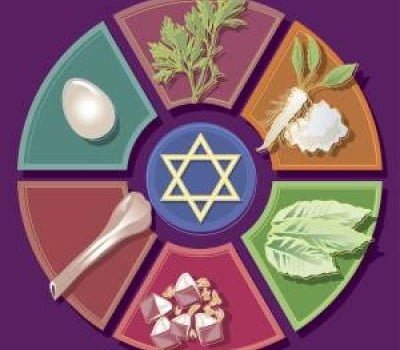Contenus
ToggleIn short
Pessa’h (en hébreu : פֶּסַח, Pessa’ḥ ; en latin : Pascha, « Pâque ») est l’une des trois fêtes de pèlerinage du judaïsme prescrites par la Bible hébraïque, au cours de laquelle on célèbre l’Exode hors d’Égypte et le début de la saison de la moisson de l’orge qui inaugure le cycle agricole annuel.
Elle commence le 14 nissan à la tombée de la nuit (qui correspond, selon les années, à la fin du mois de mars ou au mois d’avril dans le calendrier grégorien) et dure sept jours (huit en diaspora selon le judaïsme orthodoxe) dont seuls les premiers et les derniers sont totalement fériés. Elle inaugure en outre la période de l’omer au terme de laquelle est célébrée la fête de Chavouot.

Passover, the Exodus from Egypt
Particulièrement riche en rites et coutumes, la fête se distinguait originellement par l’offrande pascale que les Juifs ne peuvent réaliser depuis la destruction du Temple (les Samaritains continuent à l’offrir sur le mont Garizim). L’obligation de manger des matzot (aliments azymes) et de bannir le hametz (aliments à base de pâte levée et/ou fermentée) tout au long de la fête demeure en application.
This festival has its origins in the agricultural rite of matzos and the nomadic rite of the blood of the lamb particularly on the tent stakes to ward off epidemics. The etymology given to the name of the holiday is that it comes from the verb Pesach which means to jump over or pass over in Hebrew. This recalls that during the tenth game of Egypt, death “jumps” above the houses of the Hebrews, to strike only the first-born Egyptians.
The current holiday of Passover brings together two biblical celebrations.
The first is the paschal offering (korban pesach in Hebrew), the sacrifice of a lamb aged one year and without blemish carried out according to certain rules by the heads of families on the evening of the fourteenth day of the month of Aviv . Prescribed for the first time before the tenth wound of Egypt, the death of the first born of each household, its aim is to protect those who have noticed it: while they will eat the roast offering with unleavened pain (matzot) and bitter herbs, the blood of the lamb placed on the lintels of their dwelling will serve as a sign because “I will recognize this blood and I will pass over you (Hebrew: וּפָסַחְתִּי עֲלֵכֶם oufassa'hti alekhem); the scourge will not have taken hold of you.”
The second is the matzo festival (hag hamatzot). Prescribed jointly to commemorate the Exodus from Egypt, it lasts a week during which only matzo can be consumed, where leaven (hametz) must be eliminated from the home under penalty of cutting off from the people and whose first and seventh days are holy summons.
Associated with the haste with which the Israelites left Egypt5, the Passover and the unleavened feast are however presented as distinct, both in time and rite and in meaning6: the first takes place on the evening of the fourteenth day of first month, celebrates the deliverance from Egypt (a second passover is planned for those who would have been unable to achieve the first) while the second, appearing for seven days from the fifteenth day, is linked to the germination of barley and the annual agricultural cycle;
attached to it is the offering of the omer taken from the first fruits of the new harvest and the counting of seven full weeks from the date of this offering, at the term retained on the celebration of a new holy convocation, the feast of the Harvest (or of the First Fruits).
The Passover, designated after the victory of Joshua at Gilgal8, is no longer mentioned until the reigns of Hezekiah and Josiah, in a climate of popular fervor (although it was, according to the chronicler, revealed at the time of Samuel and Solomon; the intervals could be explained by the national disunity at the time of the Judges and by the idolatry delivered by Jeroboam). Another celebration takes place upon the return to Zion, in accordance with the Law and in a joyful spirit.
Social networks
Today, Jews begin the holiday of Pesach (Passover). For seven days, the Exodus from Egypt is celebrated and the beginning of the barley harvest season which inaugurates the annual agricultural cycle. #mythology #myth #legend #calendar #14nissan #pesach #pascha
Picture
